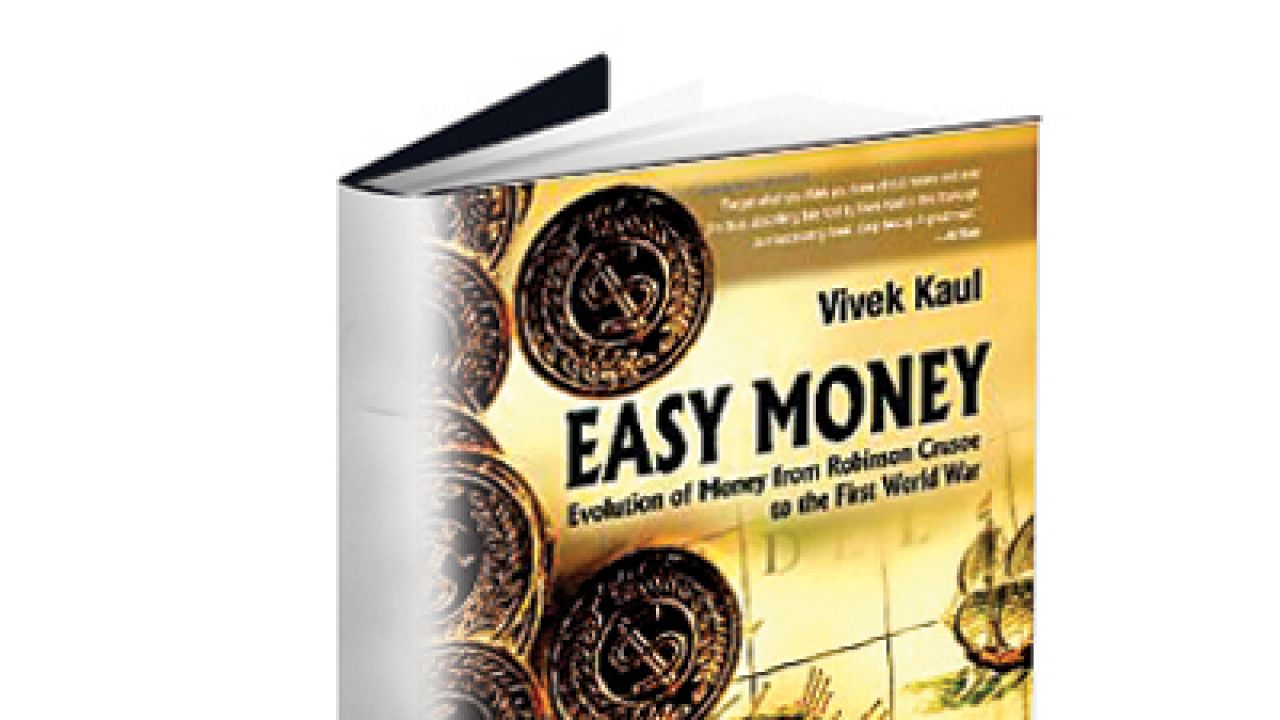
Book: Easy Money: Evolution of the Global Financial System to the Great Bubble Burst
Publisher: Sage Publications
Pages: 356
Price: Rs 328
I predict that Infospace will be the first company ever to have a one-trillion dollar market capitalisation."
This quote by a CEO on his internet venture's prospects just before the tech bubble burst in early 2000s in the second part of Vivek Kaul's Easy Money trilogy sums up the becoming and unbecoming of money in the last century.
In this racy narrative, Kaul, a former finance lecturer and editor, recounts the monetary history from the beginning of the 20th century till the internet bubble of the early 2000s, giving an insight into the evolution of the current global economy and what money means in today's world.
The book opens with the US and British central bank governors getting together to give coup de whiskey, or a booster dose, to the stock market in the early 1900s by cutting interest rates — a glimpse into what lay ahead for the world of finance over the next century. His detailing of factors, which led to the Great Depression of the 1930s, draws parallels with the 2007 financial crisis and explains why the central banks chose to flood the world with money with the first whiff of trouble six years ago. It was a combination of factors and drying up of credit to one segment that led to a contagion and ultimately the Great Depression, argues Kaul.
From the Great Depression, Easy Money gathers pace, chronicling the nations' struggles to cling to the gold standard and peppering the book with nuggets such as how Richard Nixon halted a popular TV show to announce its demise.
The struggles to keep the Bretton Woods system, under which the dollar became the global reserve currency, and the system's end makes for a fascinating read. Also, how a meeting of the Saudi king with President Franklin Roosevelt on a US warship turned the fortunes of the dollar, immensely contributed to its current dominion. Over the years, the exorbitant privilege of the dollar has led to many financial crises in different parts of the world, including the present one.
Easy Money describes the events that shook the financial world – the rise and fall of tiger economies all on the flow of hot money, the Black Monday crash of 1987 that happened due to the fall of the insurance portfolio, the Latin American currency crises and devaluations, the fall of Russian bonds and the spectacular crash of Long-Term Capital Management. It chronicles the trade wars nations waged against each other and their fight against inflation.
The book brings out the role of central bankers from their evolution after the Depression era, their struggles with printing press after the world went off gold – from the puncturing of the asset bubble by the Japanese central bank that led to a never-ending deflation to Volcker's breaking the back of inflation. "I respect his independence. However, I hope that independently he will conclude that my views are the ones that should be followed," declared Nixon on the appointment of Arthur Burns as Federal Reserve chief in 1970. This quote is a reminder of the duel between the Indian central banker Subbarao and former finance minister P. Chidambaram. He also looks into Alan Greenspan's success in keeping interest rates low and helping usher in prosperity.
The book chronicles the computer and internet boom that boosted productivity in the US, helping keep the interest rates low, bringing in an era of prosperity but also building up asset bubbles. A pertinent point Kaul makes is that while Greenspan stuck to the central bank diktat of keeping rates low, he also allowed bubbles to build — a classic central banker dilemma of whether to prick the bubble or not, and if so, then when to.
While a lot of economics books are long and unwinding, Kaul's work, though elaborate, gives readers a clear understanding of the events that shaped the current financial world.
g_jaiprakash@dnaindia.net; @dna